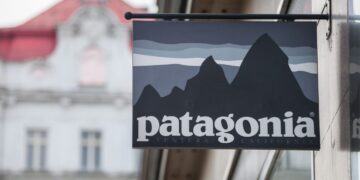In order to fully understand the term ‘sweatshop-free’, it’s important to look at the meaning of the word ‘sweatshop’.
Within the clothing industry, there are thousands of adults and children who work long hours in factories and get very little in return. These factories, which are often kept in terrible conditions, are known as sweatshops.
The clothing industry isn’t the only one in which sweatshops are used – there are electronics companies and toy companies which manufacture many of their products from inside sweatshops.
Most sweatshops are in developing countries such as China and India, although they can be found all over the world, even in countries where the practice is illegal.
Why are sweatshops illegal in many countries?
Not only are the factories often damp, dusty and moldy, but the workers are forced to stand while working for up to 16 hours a day.
They get no sick pay, maternity pay, or any other benefits that employers are required to give their staff.
Children as young as 10 years old are found working in sweatshops for 7 days a week, getting paid the equivalent of around 32 cents per hour.
In countries such as Bangladesh, the hourly rate decreases to approximately 13 cents per hour, even for experienced workers.
The term ‘sweatshop-free’
In 2002, American Apparel came up with the phrase ‘sweatshop-free’ in a campaign to treat their employees ethically and fairly, no matter where they lived.
The term was used to emphasize the fact that their clothes were not made in sweatshops.
Instead, the clothing was being made by workers under comfortable conditions and for a living wage – ‘free’ from the horrors of sweatshops.
The company aimed to recognize each employee as an individual, giving them a voice and an opinion, regardless of their position.
Ever since it was founded in 1989, American Apparel has paid its workers fairly, treated them in a humane manner, and campaigned for equal rights and better conditions in the clothing industry.
American Apparel isn’t the only company that is against the use of sweatshops.
ModCloth, American Love Affair, and Cana Collection all sell clothing that is made in America rather than in overseas sweatshops.
Many consumers would rather buy clothing made in an ethical manner, even if it means paying more for it.
In a study, most people responded saying they would happily pay up to 15% more for sweatshop-free clothing.
Campaigning for sweatshop-free
In the last few years, there have been many campaigns to stop the support of sweatshops.
The Children’s Place, Disney, and Walmart are just a few of the businesses which have been found to use sweatshops in the past in order to get cheap labor and low prices.
Consumers are often unaware of the fact that they are indirectly supporting sweatshops.
If you want to support a sweatshop-free campaign, there are many charities that are looking for help.
SweatFree is a charity that encourages people to either donate or promote their campaign to push large institutions to quit using goods made in sweatshops.
People & Planet is aimed mainly at students to help them make a stand in their school, college, or university.

















